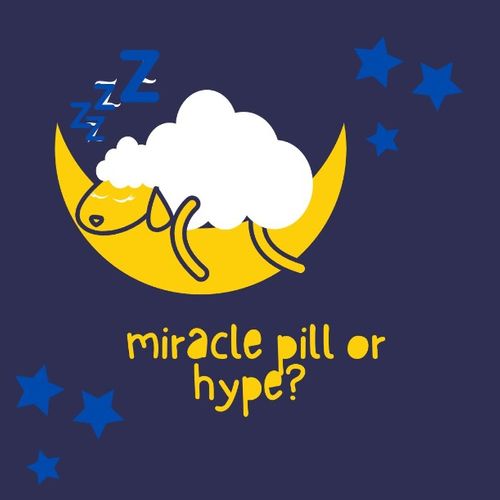Is Melatonin Safe and Effective for Helping with Sleep?
Oct 16, 2022 · 2 mins read
0
Share

A thread in an online group asked what is something every U.S. household has. But nowhere amid Ranch Dressing, junk drawers, and big televisions was a bottle of melatonin mentioned; though the supplement, requiring a prescription elsewhere, is unregulated and widely used.
Save
Share
About half of all Americans report routine interrupted sleep patterns and 70 million Americans have sleep disorders. That's huge considering lack of sleep is associated with injuries, chronic diseases, mental illnesses, and poor quality of life and well-being. Insert melatonin.
Save
Share
From the 90s to 2018, there was a 500% increase in the use of melatonin. Many researchers believe that this number has grown enormously throughout and following the COVID pandemic. It's hard for experts to get conclusive numbers since supplements are not regulated by the FDA.
Save
Share
There's misinformation surrounding melatonin. Melatonin is a hormone that influences your sleep-wake cycle. It's naturally produced by the pineal gland and gradually released into your bloodstream. But if you don't produce enough or at the right time, your sleep rhythm suffers.
Save
Share
Unlike other sleep aids, melatonin supplements don't actually put you to sleep. It merely suggests to your body that it's time to sleep. With such a 'gentle' suggestion and finding it on grocery store shelves, it's easy to think more is better. But it's possible to overdose.
Save
Share
It's generally advised that an adult take no more than 1-5 mg of melatonin per night, and only for a few weeks to help regulate a cycle that's become erratic. While that may seem low, your gland naturally produces just 0.3 mg per night. So 1 mg extra is a significant spike.
Save
Share
Signs that someone has overdosed on melatonin include dizziness, headache, nightmares, and changes in blood pressure. While taking a bit of melatonin may help, it's important to also practice good sleep hygiene. Lights on screens for instance should be off.
Save
Share
Melatonin isn't a cure all. It doesn't 'knock you out' like some other sleep aids. While most doctors agree it's safe and can be effective when combined with other good sleep habits, it also is ripe for abuse by people who don't understand how to properly use it or how much.
Save
Share
0




